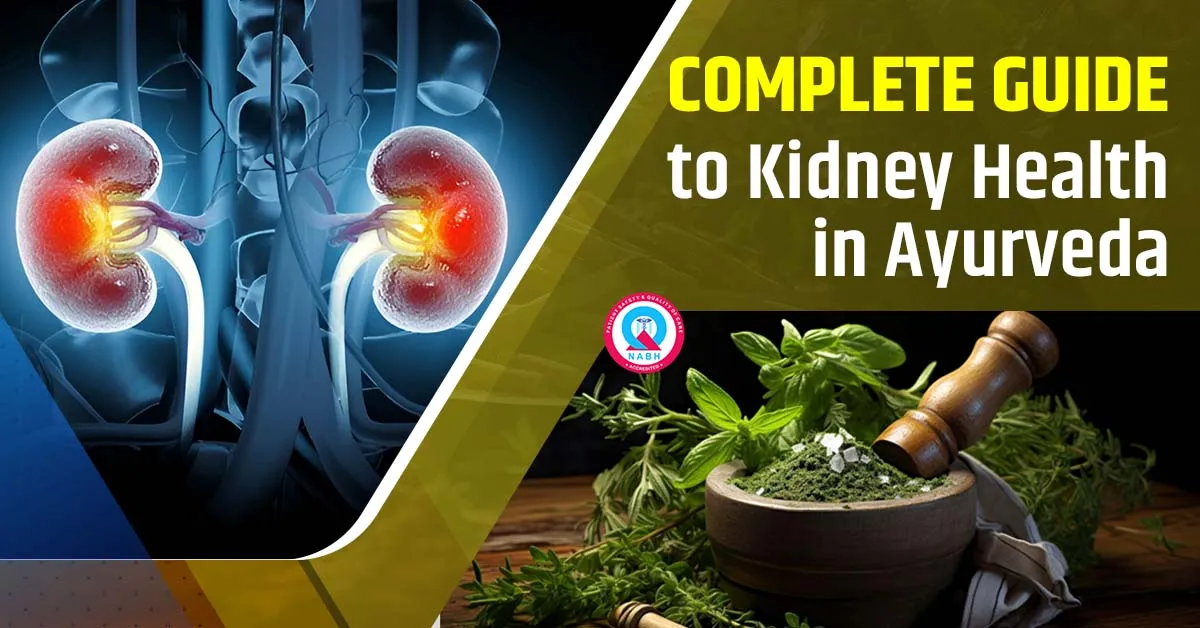
We often associate kidneys with medical tests, filtration systems, and urine output. Why is this? Ayurveda, the traditional medical system of India, offers a more comprehensive understanding of the human body's organs. Our energy, doshas, and emotions are linked to them. How are kidneys referred to in Ayurveda? "Vrikka" is the answer, but there are other aspects of the story that need to be considered.
The word "Vrikka" is a Sanskrit term used in Ayurvedic texts, such as the Charaka Samhita and Sushruta Samhita, to refer to the kidney, which not only describes its physical form but also its vital and active function in the body. The Vrikka are two bean-like structures located on either side of the spine, as per Ayurveda, and their primary role is to regulate fluid balance, urine production, detoxification, and elimination of toxins.
Each organ is regulated by specific doshas and elements according to Ayurvedic kidney disease treatment. Vrikka (water-related kidneys) are primarily linked to water and are strongly affected by Apana Vata, which is a subtype of Vatian dosha that governs downward movements in the body, including urination, bowel movements, and menstruation. If the Apana Vata is disturbed, it can result in urinary problems, water retention, or toxin accumulation in the kidneys.
The Apana Vata is essential for maintaining proper bladder and kidney function and promoting efficient waste elimination. Connection with Rakta Dhatu and Ojas
Rakta Dhatu (the blood tissue) establishes a strong relationship with the kidneys in their functions. The blood filtration process removes extra water alongside salts, together with metabolic waste products. Bloodstream purification depends on the kidneys to keep the system healthy and clean.
In Ayurvedic treatment for kidneys, the kidneys are believed to store the vital life force known as Ojas. This vital essence serves as the foundation for immunity while supporting vitality and general health in the body. Poor kidney health leads to diminished Ojas levels, which results in both decreased immunity and exhaustion as well as physical weakness.
Ayurveda views kidney issues as a result of dosha imbalance, often involving Vata and Kapha. For example:
These imbalances can be managed through diet, herbs, lifestyle changes, and cleansing therapies like Panchakarma.
To nourish and strengthen the kidneys, Ayurveda recommends herbs like:
These herbs work by removing toxins, supporting tissue repair, and balancing the doshas affecting the kidneys.
Ayurveda places strong emphasis on preventive care, and for healthy kidneys, this means:
According to Ayurvedic kidney treatment, kidneys function as dynamic energy centers instead of mere mechanical filters because they support elimination, immunity, and vitality. Identifying them as Vrikka enables us to value their significance beyond laboratory results and imaging studies. Ayurveda employs gentle herbal remedies along with appropriate nutrition and balanced living to restore kidney function while supporting long-term wellness.
When you contemplate your kidneys next time, recall that they are your Vrikka; your body's silent sages who care for you tirelessly, and they merit all the attention and care you can provide.
Second Floor, 77, Block C, Tarun Enclave, Pitampura, New Delhi, Delhi, 110034